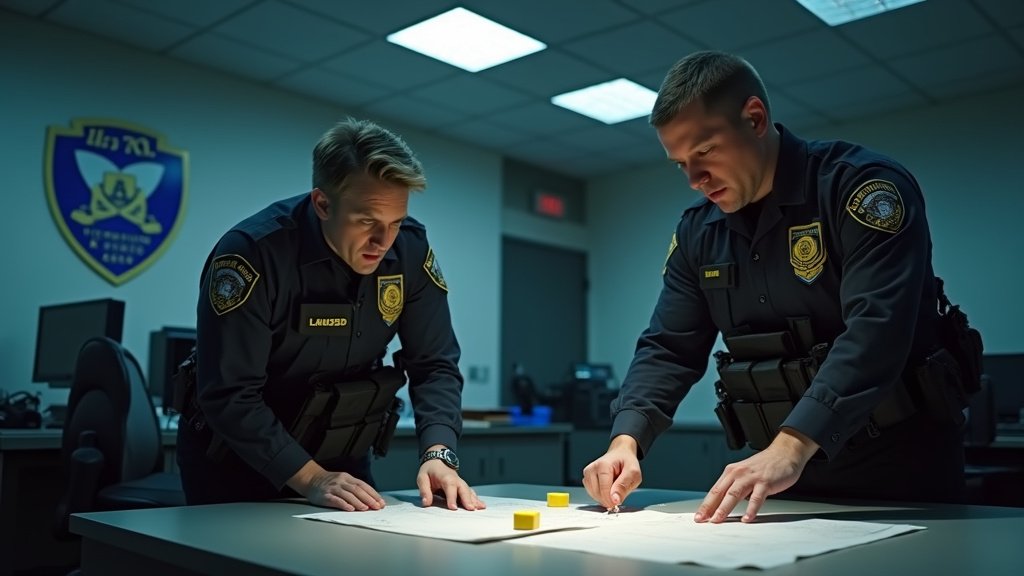SAN FRANCISCO – A federal judge is demanding urgent legal arguments on whether the deployment of thousands of National Guard troops and U.S. Marines to Los Angeles by President Donald Trump potentially violates a foundational U.S. law restricting military involvement in domestic law enforcement. The inquiry from U.S. District Judge Charles Breyer came during a hearing on Friday, June 21, 2025, held in a federal courtroom in San Francisco, focusing on a legal challenge brought by the State of California against the presidential deployment.
Judge Breyer has ordered legal teams representing both the state and the federal government to submit briefings by noon on Monday detailing their positions on whether the controversial deployment runs afoul of the Posse Comitatus Act. This key post-Civil War statute, enacted in 1878, generally prohibits the use of the U.S. Army and Air Force (and by extension, other federal military components under certain circumstances) for domestic law enforcement purposes without explicit statutory authorization. California argues that the deployment of both federally controlled National Guard members and active-duty Marines for duties potentially involving interactions with the civilian population in Los Angeles constitutes a violation of this act.
Background of the Deployment
The current judicial scrutiny arises from President Trump’s decision earlier this month to deploy approximately 4,000 National Guard members and 700 Marines to Los Angeles. This action was taken in response to protests that erupted following a series of immigration raids in the area. The deployment marked a significant moment in U.S. history, being the first time since 1965 that a U.S. president has deployed a state’s National Guard forces without the consent of the state’s governor.
The hearing before Judge Breyer followed a decision by a 9th Circuit appellate panel earlier, which had temporarily allowed President Trump to retain control over the deployed troops. This appellate ruling set the stage for the district court hearing in San Francisco to address the underlying legal questions raised by California’s challenge.
California’s Legal Challenge
California Governor Gavin Newsom initiated the legal action by filing a complaint arguing that a violation of the Posse Comitatus Act is either imminent or already occurring due to the nature of the troops’ presence and potential activities in Los Los Angeles. The state is seeking a preliminary injunction from the court to effectively return control of the deployed National Guard forces to state authority and potentially compel the withdrawal of the Marines, asserting that the federal deployment infringes upon the state’s sovereign authority over domestic order and the activities of its own Guard forces when not properly federalized.
State officials contend that the presence of federal military personnel, particularly active-duty Marines, engaging in functions that could be perceived as law enforcement or crowd control, crosses the line drawn by the Posse Comitatus Act, which aims to prevent the U.S. military from acting as a domestic police force. The lawsuit highlights concerns about the potential for military forces, trained for combat, to become involved in situations traditionally handled by civilian law enforcement agencies like local police and sheriff’s departments.
Vice President Vance’s Visit and Remarks
Adding a political layer to the unfolding legal and operational situation, Vice President JD Vance visited Los Angeles on the same day as the San Francisco court hearing. During his visit, Vice President Vance met with some of the deployed troops and offered public remarks defending the administration’s actions. He stated that the troops remain “necessary” in Los Angeles, citing ongoing concerns that unrest could potentially flare up again in the city.
Vice President Vance also used his platform to criticize California’s leadership. He specifically accused Governor Newsom and Los Angeles Mayor Karen Bass of encouraging illegal immigration and, furthermore, of failing to provide adequate support for local law enforcement agencies. These comments underscore the political tension surrounding the deployment, linking the presence of federal troops to broader issues of immigration policy and state-local governance challenged by the federal administration.
Judicial Focus on Posse Comitatus
Judge Breyer’s specific request for detailed legal briefings on the Posse Comitatus Act underscores the critical nature of this statute in the current legal dispute. The court’s focus will be on interpreting the scope of the Act and determining whether the specific roles and activities assigned to the approximately 4,000 National Guard members and 700 Marines in Los Angeles fall within the Act’s prohibitions or under any exceptions. The arguments presented by both sides by the Monday deadline will be pivotal in shaping the judge’s decision on California’s request for injunctive relief.
The outcome of this legal challenge has potentially far-reaching implications, not only for the immediate situation in Los Angeles but also for the balance of power between federal and state governments regarding the use of military forces in domestic situations and the interpretation of a key civil liberties statute in the modern era.
Legal analysts anticipate that the briefings will delve into the specific orders given to the deployed troops, their operational parameters, and how these compare to traditional law enforcement functions. The federal government is expected to argue that the troops’ role is supportive or ancillary to civilian authorities, while California will likely contend that their presence and activities cross the threshold into prohibited direct law enforcement. The judge’s ruling will be keenly watched as it could set a precedent for future federal deployments within states without gubernatorial consent.





